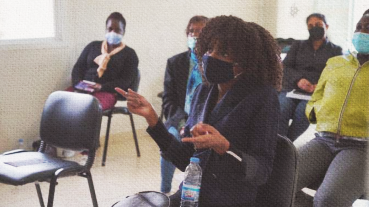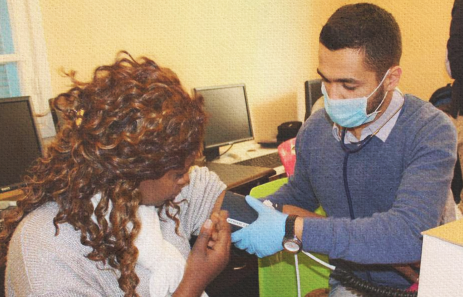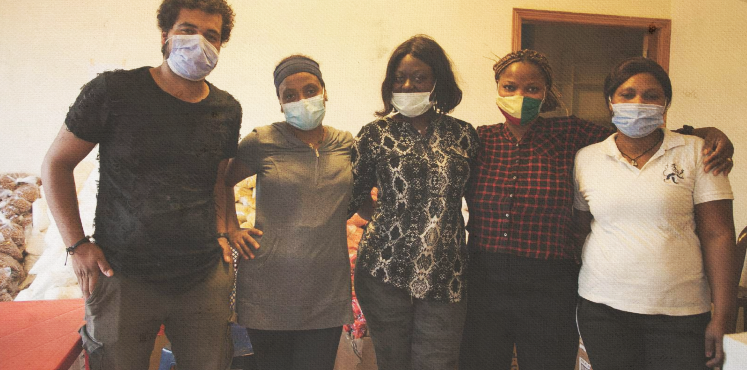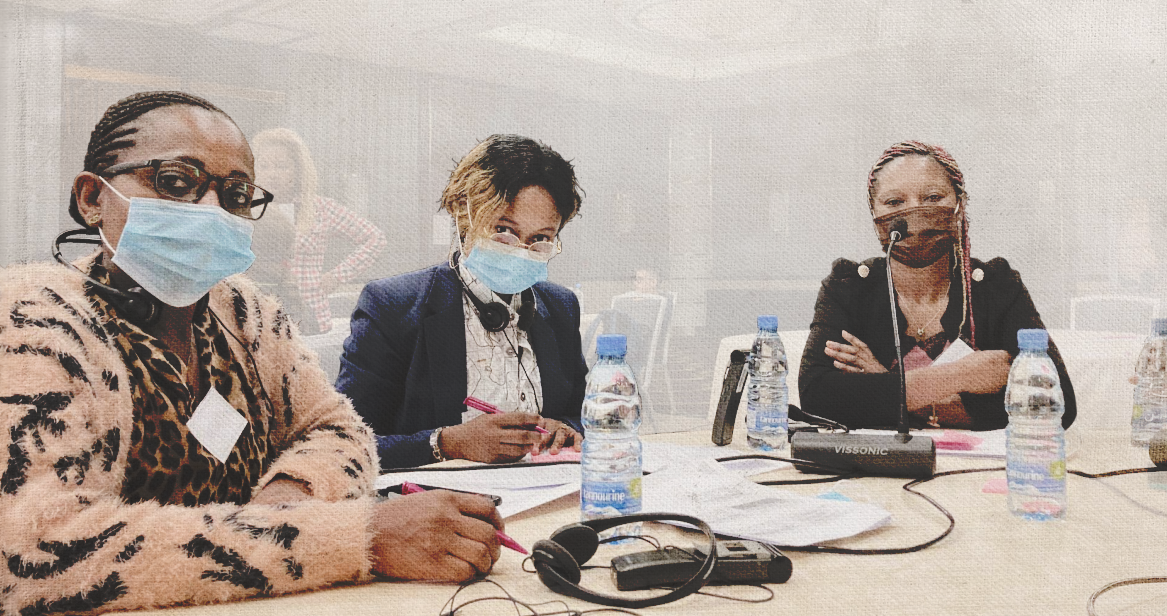Annual Report 2021
29/12/2022
The context in 2021 was riddled with uncertainties, lockdowns, and fuel and electricity shortages which imposed countless restrictions on our ability to carry out our most basic tasks. 2021 started with one of the strictest national COVID-19 lockdowns globally, with an around-the-clock curfew imposed on all “non-essential” workers. We deemed our work to be more essential now than ever, since Migrant Domestic Workers around the country were struggling to make ends meet, whether these ends were the most basic needs for survival, to find a job and/or a house, or escape an abusive one, or to secure a flight ticket and a passport to go back home.
Click here to download the annual report.
“2021 topped 2020 in its incredibly difficult toll on us as individuals, a movement and an organization. We had to carry the excruciating weight and complexities of the year before it and then some.” – Farah Salka, Executive Director
A Few Highlights From 2021
Building and Sustaining Strong Communities for Migrant Domestic Workers through the Migrant Community Centers (MCC)
Since 2011, MCC has been a safer space for migrant communities to meet, make friends, share resources, learn languages, build skills, produce knowledge, self-organize, and advocate for their rights as leaders of change.
Following the year-long closure of the centers due to Covid-19, MCC reopened in Beirut early 2021, hosting 546 migrants representing 26 nationalities, who continue to meet, lead initiatives, and participate in different programs until today.
Vaccination campaign: No herd immunity without vaccines for migrant workers
Solidarity Response: The Relief Project
In 2020, ARM launched a relief program which included three components: food distribution, housing support and evacuation. The objective was to answer to the immediate needs of the Migrant communities struggling in face of exacerbating hardships due to Covid-19, the hyperinflation and finally the Beirut blast.
In May 2021, ARM supported Concern Worldwide in a humanitarian response project proposal by sharing knowledge on relief interventions with Migrant Workers (lessons learnt, best practices, outreach strategies etc) and sharing its database of more than 450 Migrant households with them in order to promote a continuation of the relief operations through a more experienced organization. Concern was able to begin implementation halfway through 2023 and prioritized the inclusion of ARM’s distribution list.
Even though stopping our relief work had serious consequences, we managed to consolidate and disseminate our lessons learnt to other groups and organizations, and advocate for more service provision across local and international humanitarian actors.
Click here to read more about our relief work from 2021.
Casework
Another highlight is when one of ARM’s case workers was contacted by a domestic worker requesting our support in going back to her home country and retrieving her unpaid wages that amounted to 10,200$. She had tried several times to talk to her sponsor but never got a straight answer and was met with violence and emotional abuse. We lost contact with her for a period of 2 months and found out later that she was locked inside the house of her employer without food or drinkable water for more than a month and had to drink water from the faucet to survive. Our lawyer moved fast and presented a complaint against the sponsor at the General Security and pressured them to act as fast as possible to help this worker. They were able to locate her and after an investigation that corroborated her story, the perpetrator was imprisoned for 4 days. The case leader did not want to pursue further legal actions and opted for getting the full amount of her unpaid salary and a ticket back to her country.
International Advocacy
While 2021 in Lebanon made any discussions around meaningful policy change seem obsolete, we thought there might be some avenues for pressure for accountability that we can pursue on an international level. And so we decided to engage with UN review mechanisms that Lebanon is signatory to, starting with the Committee on Elimination of Racial Discrimination (CERD).
ARM submitted a shadow report to the Committee for its periodic review of Lebanon, endorsed by 6 other NGOs. We primarily focused on discriminatory policies and practices learnt about during our work with members of migrant and refugee communities living and working in Lebanon, thus providing a glimpses of the racism exhibited and perpetuated by Lebanese authorities in order to increase the UN pressure on the issues of migrants and refugees in the country.
Later in the year, we also provided a brief report and met with the Special Rapporteur on extreme poverty and human rights, to ensure that the devastating effects the economic crisis had on Migrant Domestic Workers in Lebanon do not go unnoticed, and are on the government’s radar against a systematic media discourse that frames Migrant Workers as beneficiaries from the economic collapse.
To learn more, click here to read our 2021 Annual Report.
Related Posts
Have Any Questions?
To inquire about this statement and the context, email us or fill the form.
Join Our Newsletter
At the Anti-Racism Movement (ARM), we are constantly working on a multitude of different activities and initiatives. Most of our activities are only possible with the help of dedicated and passionate volunteers who work in collaboration with our core team.
The Anti-Racism Movement (ARM) was launched in 2010 as a grassroots collective by young Lebanese feminist activists in collaboration with migrant workers and migrant domestic workers.
Quick Links
Useful Links
This work is licensed under a Creative Commons Attribution 4.0 International License.
Developed by CONCAT







